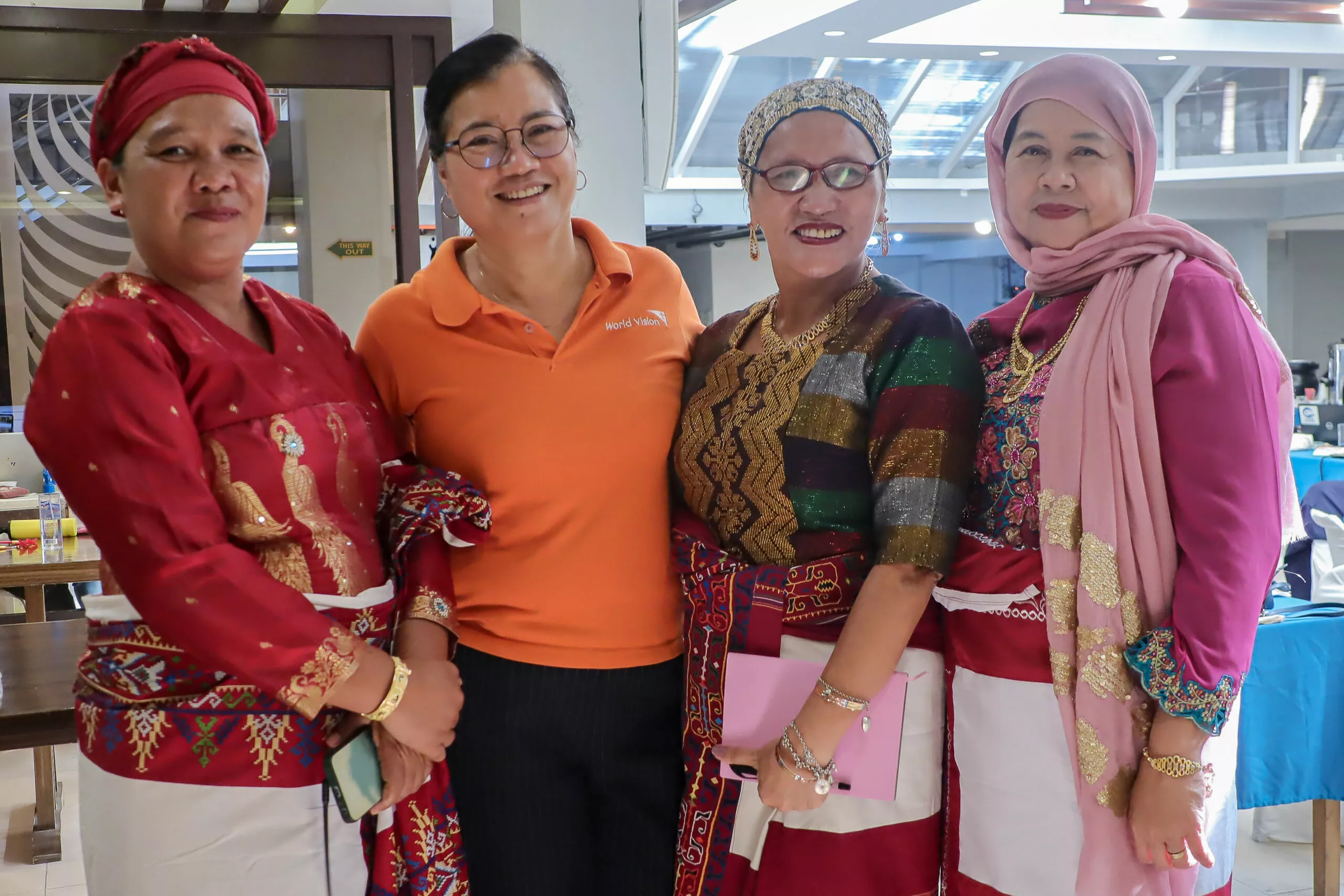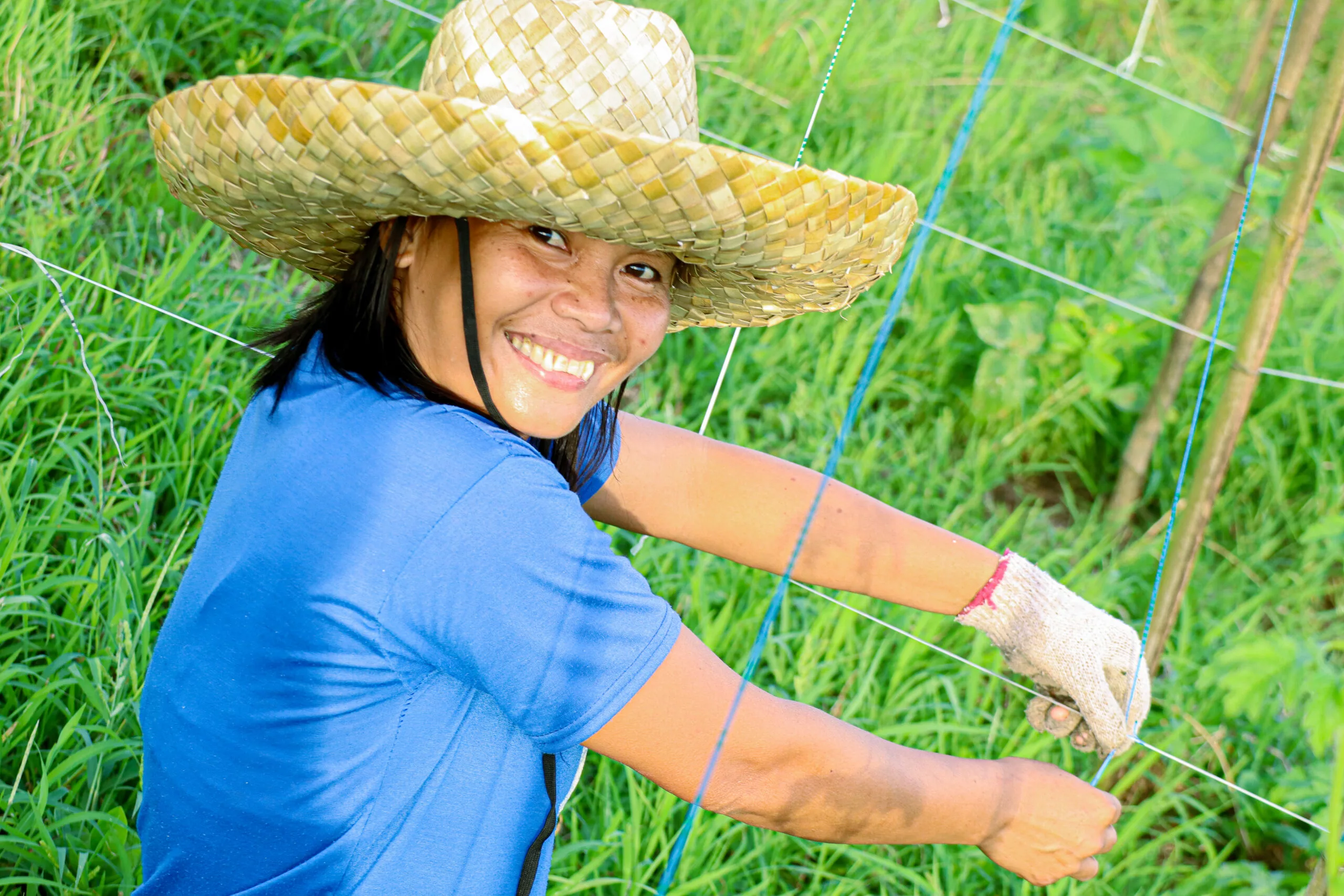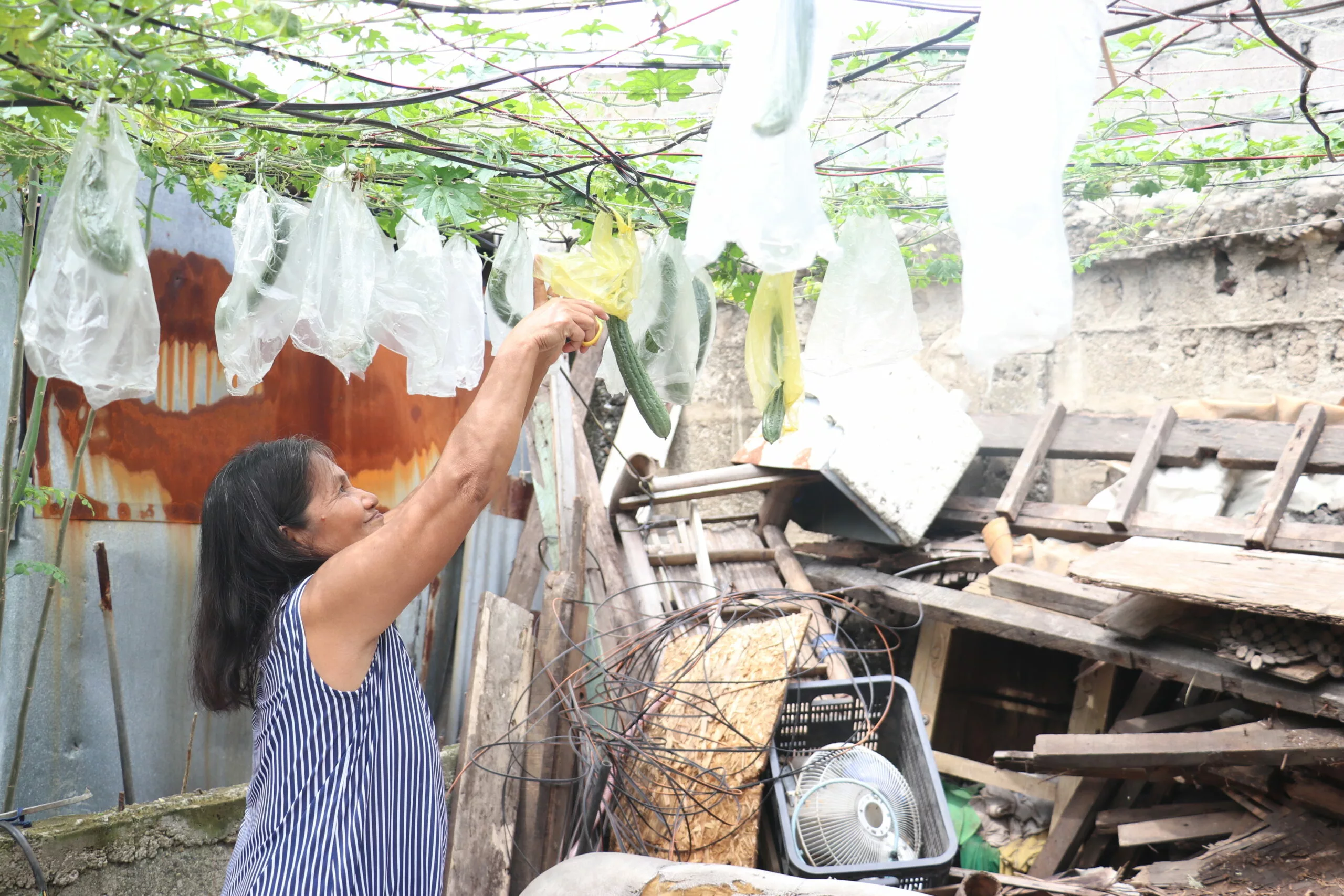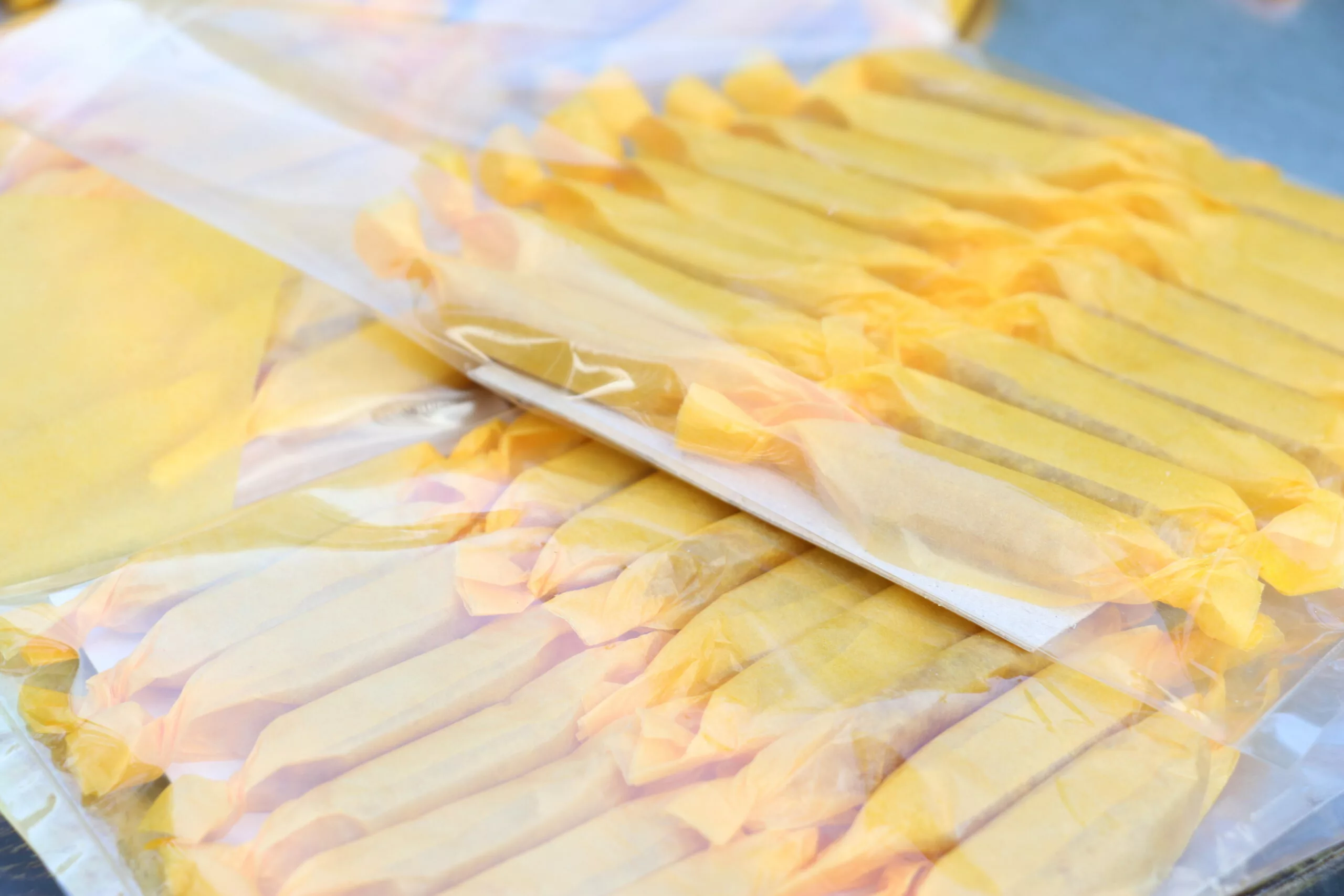Rice farmer sees value in organic rice farming
By Roxanne Angelika S Dela Cruz | Field and Emergency Communications Specialist
NORTH COTABATO — Rice farmer Richard, 42, who has been farming for 14 years, shares how he learned new things from the Climate Smart Agriculture training facilitated by The Philippine Rural Reconstruction Movement (PRRM) and World Vision.
“I learned more about organic fertilizers, organic pesticides, and intensifying rice production,” he says. “I did not know what can be used as pests and fertilizers. I used to rely on synthetic products. Now, I am more aware that everything can be found in my community. Organic concoctions help me save money.”
Today, not only is Richard able to save, he has become resourceful in making his own fertilizers and pesticides. Knowing what they’re made of, he is more confident of the quality and nutrition of his produce.

Free from chemicals
Richard uses molasses and cooked rice for IMO (Indigenous Micro Organism), which has many uses such as getting rid of polluted water in soil and speeds up plant growth.
Plants and fruits such as banana, avocado, water lily or water spinach (kangkong) are used as fermented juices. Fermented plant juices can be used to enhance photosynthesis among plants, and fermented fruit juices can be given to animals to promote digestion. They can be sprayed to plants or as drinks to animals.
To induce and strengthen flowering among plants, Richard uses janitor fish or snails. “I cook it until it turns brown and turns into powder, and mix it with natural white vinegar. But here, we just use the liquid smoke, not vinegar anymore.” Liquid smoke is moist collected from smoked organic concoctions such as lemongrass, and used as insecticides.
He describes all the organic concoctions as his three-in-one spray: pesticides, fungicides, and fertilizers.
“When you apply these organic concoctions, you will initially think the pests are not dying. But when you get back to it after a few days, they’re gone,” he says. “When using organic resources, you can use as much as you can. There is no overdose. The more, the better.”

Income then and now
Richard’s sister, Rose Marie, confirms his brother’s view that using organic fertilizers and pesticides are much better. She saw the big difference of their rice harvest.
“A sack of our organic rice can be sold at Php1,400 compared to our previous rice harvest that cost only Php700-Php800,” Rose Marie says. “We’re better off in organic farming because we’re not exposed to harmful chemicals. I truly support organic farming.”
Richard adds, “We are truly grateful to PRRM and World Vision for helping us.”









